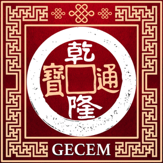ABOUT
The GECEM Database (Global Encounters between China and Europe: Trade Networks, Consumption and Cultural Exchanges in Macau and Marseille, 1680-1840) is a ground-breaking multi-relational tool designed in the relatively recent era of Digital Humanities that allows the GECEM team to gather the so-called “scattered sources” in historical archives that are spread across the globe. The process of Big Data mining applied to global (economic) history is based on cross-referencing European and Chinese historical sources. This methodological interdisciplinary approach allows us to study the circulation of global goods, changes in consumer behavior, and the formation of trade networks in the so-called “early globalization” process which fostered market integration in Asia and Europe. Chronologically the project spans the last quarter of the seventeenth century to the first half of the nineteenth century, a timeframe that encompasses the period of consolidation of the Qing dynasty, the arrival of the Bourbons to the Spanish crown, and the outbreak of the Opium Wars. Presently, the GECEM Database includes approximately 40,000 registers of Chinese and Western (European and American) goods that had circulated globally within China’s and Europe’s markets. These data from Chinese and European historical archives have been collected by GECEM researchers.
The GECEM Database has been funded by the European Research Council (ERC) under the European Union’s Horizon 2020 research and innovation programme ERC-StG 679371, and the project is hosted by the Pablo de Olavide University (UPO) in Seville, Spain, with Professor Manuel Perez-Garcia as Principal Investigator. The GECEM Database is hosted in Open Access by the Scientific Computer Center of Andalucia (CICA) in Spain.
DESIGN AND DEVELOPMENT
Technically, the database is developed and designed by the Computer Engineer Laboratory led by Professor Alfonso Ortega de la Puente and Marina Cruz Echeandia at the Autonomous University of Madrid (UAM) in Spain. The GECEM Database is designed in MariaDB, and the interfaces of query system and data input were developed with node.js. This database operates through an on-line network system allowing the input of data by GECEM researchers who work remotely at historical archives in Europe, China, and the Americas. These include the First Historical Archives of China (FHAC) in Beijing; the Historical Archives of Macau; Zi-Ka-Wei Library at Shanghai Library; the Archivo General de Indias in Seville, Spain; and the Archive de la Chambre de Commerce de Marseille in France, among others. The GECEM Database is presented in Open Access format allowing academics and non-academics to freely access the database.
In the field of global (economic) history there is no other database in the market like the GECEM Database because it has been designed through a complex and new conceptual model that is extremely advanced compared to other existing databases. Its sophistication derives from the high disaggregation of the intentionally linked entities (ILE) which provide an unlimited number of roles played by entities and attributes such as market prices, weights, good materials, socio-professional categories, among others. This complex multi-relational system analyzes the global networks of merchants, typologies of goods, geographic locations, ships’ itineraries, trade tariffs and taxes, institutions (official and informal), long-distance partnerships (“commenda”), as well as family and non-family relations across the South China Sea and Western markets. These transactions are georeferenced with the latitude and longitude coordinates being registered in order to project in the QGIS software the global and local map of these economic transactions.
Authors of GECEM Database
Manuel Perez-Garcia (Principal Investigator of GECEM Project)
Manuel Diaz-Ordoñez (Research Fellow of GECEM Project)

